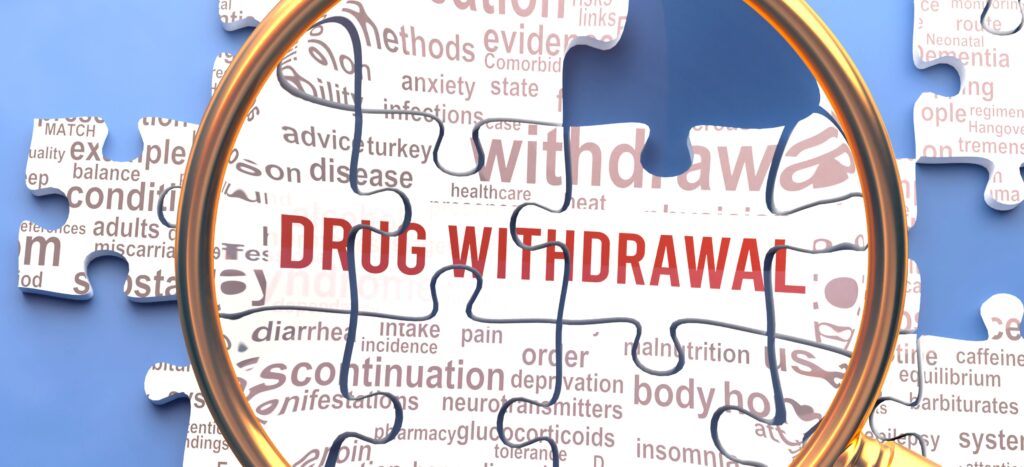Delirium Tremens (DTs) is one of the most severe and life-threatening conditions associated with alcohol withdrawal. Characterized by severe confusion, agitation, hallucinations, and seizures, DTs is a medical emergency that requires immediate intervention. While not everyone who undergoes alcohol withdrawal will experience DTs, understanding the factors that influence its onset is crucial for prevention and management.
In this blog post, we will explore the various factors that influence the onset of DTs, including the severity and duration of alcohol use, medical history, co-occurring mental health conditions, and other risk factors. We will also discuss why early recognition and medical supervision during alcohol detox are essential in mitigating the risks associated with DTs.
What Are Delirium Tremens (DTs)?
Delirium Tremens (DTs) is the most severe form of alcohol withdrawal syndrome. It occurs when a person who has been heavily dependent on alcohol for a prolonged period suddenly stops drinking or significantly reduces their alcohol intake. DTs typically manifests as a state of extreme nervous system hyperactivity due to the abrupt absence of alcohol, which the body has become accustomed to regulating its function.
Symptoms of DTs include:
- Severe confusion and disorientation
- Hallucinations (visual, auditory, or tactile)
- Severe agitation and restlessness
- Profuse sweating and tremors
- High fever
- Seizures
- Elevated heart rate and blood pressure
The onset of DTs usually occurs 48 to 72 hours after the last drink but can vary depending on multiple factors. Recognizing these factors can help healthcare professionals identify individuals at high risk for DTs and take preventive measures to ensure a safe detoxification process.
Factors Influencing the Onset of DTs
The likelihood and timing of DTs onset are influenced by several interrelated factors. Some of these factors increase the risk of experiencing DTs, while others can affect how quickly DTs symptoms develop.
1. Severity and Duration of Alcohol Use
One of the most significant factors influencing the onset of DTs is the severity and duration of alcohol use. Individuals who have a long history of heavy alcohol consumption are at a higher risk of developing DTs during withdrawal. Chronic heavy drinking leads to profound changes in the brain’s chemistry and function, making the nervous system heavily reliant on the presence of alcohol to maintain a state of equilibrium.
- Chronic Heavy Drinking: Heavy alcohol consumption over an extended period (months or years) can cause the brain to adapt to the constant presence of alcohol. When alcohol is suddenly removed, the brain experiences a state of hyperexcitability, leading to severe withdrawal symptoms, including DTs.
- High Tolerance: Individuals who have developed a high tolerance to alcohol—requiring larger amounts to achieve the desired effects—are more likely to experience severe withdrawal symptoms, including DTs, when they stop drinking.
Impact on Onset: Those with a long-term history of alcohol dependence are more likely to experience DTs within 48 to 72 hours of their last drink. The severity of withdrawal symptoms often correlates with the degree of physical dependence on alcohol.
2. Previous History of Alcohol Withdrawal
A previous history of alcohol withdrawal is a critical risk factor for the onset of DTs. Individuals who have experienced alcohol withdrawal symptoms in the past, especially severe symptoms such as seizures or hallucinations, are at a significantly higher risk of developing DTs during subsequent withdrawal episodes.
- Kindling Effect: The “kindling” effect is a phenomenon where repeated episodes of alcohol withdrawal become progressively more severe. With each withdrawal episode, the brain becomes more sensitized, leading to an increased risk of severe symptoms like DTs in future withdrawals.
Impact on Onset: Individuals with a history of previous alcohol withdrawal symptoms, particularly those who have experienced seizures or hallucinations, may experience the onset of DTs more rapidly during future withdrawal attempts. These individuals are more likely to require medical supervision and intervention during detoxification.
3. Concurrent Medical Conditions
The presence of co-occurring medical conditions can influence the onset and severity of DTs. Individuals with underlying health issues may be more vulnerable to severe withdrawal symptoms, including DTs.
- Liver Disease: Chronic alcohol use often leads to liver damage, including conditions such as alcoholic hepatitis and cirrhosis. Liver disease can impair the body’s ability to metabolize and clear alcohol, contributing to the severity of withdrawal symptoms.
- Cardiovascular Issues: Individuals with pre-existing cardiovascular conditions, such as hypertension or arrhythmias, are at higher risk for complications during withdrawal. DTs can exacerbate these conditions, leading to dangerous cardiovascular events.
- Nutritional Deficiencies: Chronic alcohol use can result in nutritional deficiencies, particularly a deficiency in thiamine (vitamin B1). Thiamine deficiency can lead to Wernicke-Korsakoff syndrome, a neurological disorder that can present symptoms similar to DTs.
Impact on Onset: Individuals with co-occurring medical conditions may experience a more rapid and severe onset of DTs. For example, those with liver disease may have an impaired ability to metabolize alcohol, leading to a more pronounced withdrawal syndrome.
4. Co-Occurring Mental Health Disorders
Mental health disorders, such as anxiety, depression, bipolar disorder, and post-traumatic stress disorder (PTSD), can influence the onset and severity of DTs. Individuals with co-occurring mental health conditions are more likely to use alcohol as a form of self-medication, leading to a higher risk of dependence and withdrawal complications.
- Increased Stress Response: The presence of a mental health disorder can lead to an increased stress response during withdrawal, exacerbating symptoms such as anxiety, agitation, and hallucinations.
- Higher Risk of Seizures: Co-occurring mental health conditions, particularly those involving anxiety disorders, may increase the risk of seizures during alcohol withdrawal, a key feature of DTs.
Impact on Onset: Individuals with co-occurring mental health disorders may experience a more rapid onset of DTs, with heightened anxiety, agitation, and hallucinations appearing within the first 48 to 72 hours of withdrawal.
5. Co-Use of Other Substances
The co-use of other substances, such as benzodiazepines, opioids, or stimulants, alongside alcohol can significantly influence the onset of DTs. The combined effects of multiple substances can complicate the withdrawal process and increase the risk of severe symptoms.
- Benzodiazepines: Individuals who use alcohol in combination with benzodiazepines (e.g., Xanax, Valium) are at a higher risk of severe withdrawal symptoms, including seizures and DTs. Both substances depress the central nervous system, and withdrawal from either can result in hyperexcitability.
- Opioids: The use of opioids (e.g., heroin, oxycodone) with alcohol can amplify the effects of both substances, leading to more severe withdrawal symptoms when both are discontinued.
- Stimulants: Stimulant use (e.g., cocaine, methamphetamine) can exacerbate withdrawal-related anxiety and agitation, potentially increasing the severity of DTs.
Impact on Onset: The co-use of other substances can lead to a more unpredictable and rapid onset of DTs, often requiring specialized medical management to address the complexities of multi-substance withdrawal.
6. Lack of Medical Supervision
Attempting to detox from alcohol without medical supervision is a significant risk factor for the onset of DTs. Detoxing at home or in an unsupervised setting increases the risk of complications, as there is no immediate access to medical intervention if severe withdrawal symptoms, such as seizures or DTs, develop.
- Delayed Treatment: Without medical supervision, the early signs of DTs may go unnoticed or be misinterpreted, leading to delayed treatment and an increased risk of life-threatening complications.
- Lack of Medication: Medical supervision allows for the administration of medications, such as benzodiazepines, to reduce the risk of DTs and manage withdrawal symptoms safely.
Impact on Onset: Individuals who attempt to detox without medical supervision are more likely to experience a rapid onset of DTs due to the absence of appropriate monitoring, medication, and support.
Early Signs and Symptoms of DTs
Recognizing the early signs of DTs is crucial for seeking immediate medical intervention. Early symptoms that may indicate the development of DTs include:
- Severe confusion and disorientation
- Visual, auditory, or tactile hallucinations
- Severe agitation and restlessness
- Profuse sweating and tremors
- Elevated heart rate and blood pressure
- Seizures
The Importance of Medical Supervision During Alcohol Detox
Given the risks associated with DTs and severe alcohol withdrawal, medical supervision during detoxification is essential. Medical professionals can monitor the individual’s condition, provide medications to manage symptoms, and intervene promptly if DTs develop.
Benefits of Medical Supervision:
- Safety Monitoring: Continuous monitoring of vital signs and symptoms to detect early signs of DTs and prevent complications.
- Medication Management: Administration of medications, such as benzodiazepines, to reduce the risk of seizures and alleviate withdrawal symptoms.
- Emergency Intervention: Immediate medical intervention in the event of DTs, including supportive care and intensive treatment if needed.
Preventing the Onset of DTs
Preventing the onset of DTs requires a proactive approach that includes:
- Seeking Professional Help: Consult a healthcare professional before attempting to detox from alcohol, especially if there is a history of heavy drinking or previous withdrawal symptoms.
- Undergoing Medically Supervised Detox: Consider detoxing in a medically supervised setting, such as a detox center or hospital, to ensure safety and support.
- Gradual Reduction: In some cases, a healthcare professional may recommend a gradual reduction in alcohol intake to reduce the risk of severe withdrawal symptoms.
Conclusion
Delirium Tremens (DTs) is a severe and potentially life-threatening condition that can occur during alcohol withdrawal. The onset of DTs is influenced by factors such as the severity and duration of alcohol use, previous history of withdrawal, co-occurring medical and mental health conditions, co-use of other substances, and the presence or absence of medical supervision. Recognizing these factors is essential for identifying individuals at high risk for DTs and taking preventive measures to ensure a safe detoxification process.
Medical supervision during alcohol detox is crucial for preventing the onset of DTs, managing withdrawal symptoms, and ensuring the individual’s safety. By understanding the factors influencing the onset of DTs and seeking appropriate support, individuals can take the first steps toward a safer and healthier path to recovery.








